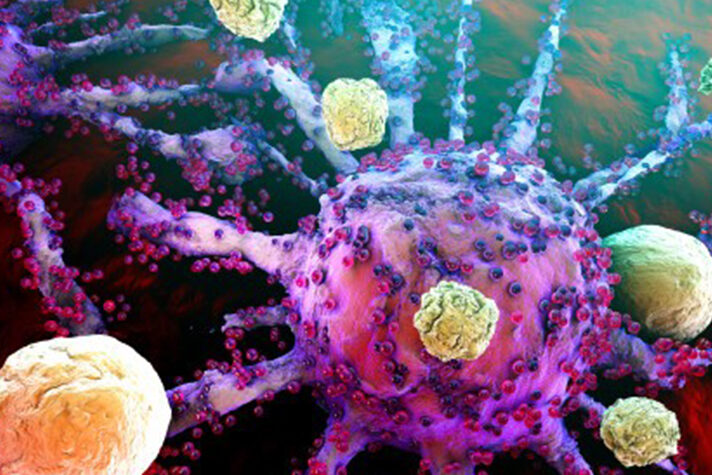‘We want to understand if we can reset the immune system so it’s more robust’
One of the patterns that emerged during the Covid-19 crisis was poorer outcomes for overweight or obese patients. This may have come as a surprise to some, but not to dietitian Prof Helen Roche, an expert in nutrigenomics.
Nutrigenomics is a branch of dietary medicine that investigates how the combination of what we eat and its interaction with our metabolism and genetic make-up influences our immune response to serious illness and increases our predisposition to diseases such as cancer and heart disease.
As more epidemiological data on the pandemic has become available, obesity has emerged as a major risk factor for a severe reaction to Covid and admission to intensive care. Obese patients aged under 60 were more than twice as likely to need hospitalisation and those with a body mass index (BMI) of more than 35 were more likely to need ventilation. This was not entirely unexpected. Worse outcomes were also seen in obese patients during the 2009 swine flu pandemic.
Covid issues in obese and the elder
Roche, who is the director of the UCD Conway Institute for interdisciplinary biomedical research, has a background in human nutrition and molecular medicine and has been pioneering nutrigenomic research for almost 20 years. She is leading a five-year project, in collaboration with Dr Fred Sheedy of Trinity College, into diet, immune training and metabolism funded by Science Foundation Ireland.
“While it is widely recognised that food and nutrition play an important role in health and disease, the cellular and molecular effects are not fully understood,” Roche says. “Nutrigenomics uses state-of-the-art ‘omics’ technologies to investigate the interaction between nutrition and the human genome to better understand the molecular effects of nutrition status on health”.
The whole area of immuno nutrition or ‘immune fitness’ is crucial in determining how someone responds to infection
“For example, we have looked at how obesity and obesity-associated factors such dietary fats can suppress the innate immune response while we can also use nutrition to boost the immune response. The whole area of immuno nutrition or ‘immune fitness’ is crucial in determining how someone responds to infection. And it’s not just the interaction with genes, it’s also the way the genes work in terms of your metabolism,” she explains.
Asked if this means we’re heading for precision nutrition in tandem with precision medicine, Roche says – in broad terms – the answer is yes; albeit with a key qualification. The aim is not to narrow nutrition down to the individual (too costly for any health service to pursue), but to identify common characteristics in groups that may benefit from dietary or other interventions.
“We all fall in different groups and different groups respond differently to different sorts of environments and one of those environmental factors is diet,” she says. “If you can identify categories using different criteria such as age or gender, you can be more targeted in your approach.”
Roche is particularly interested in the workings of our immune system and how diet can rev it up (not necessarily a good thing) or tone it down. Those with a highly reactive immune system do not do well in the face of serious infections and while various explanations have been proposed for this, Roche says a growing body of evidence implicates obesity-induced immune dysregulation.
“With an illness like Covid, you want the body to react to clear the infection by mounting an initial response. But if the immune system doesn’t have the ability to switch down afterwards and is constantly running on high, then the heightened inflammation is actually causing the adverse reaction,” she says. “We want to understand if we can reset the immune system so it’s more robust. Given the fact that we can pep it up, can we bring it back down so it works more effectively? High-fat elements pep it up where as other healthy dietary elements – fruit, vegetables and wholegrains – may help resolve inflammation.”
The immune response was also implicated in the difficulties older people (who were not obese or overweight) experienced with Covid-19, but for different reasons as Roche notes: “As your immune system ages, it’s not quite as fit or as efficient as it once was. Then, if you’re malnourished, as can happen with older people, it doesn’t work properly because you’re missing sufficient protein and essential micronutrients – such as selenium, zinc and several vitamins – which are needed to work with the enzymes in your immune system.”
Thu, Aug 12, 2021, 06:00
Olive Keogh
The Irish Times
Nutrigenomics Institute is not responsible for the comments and opinions included in this article






